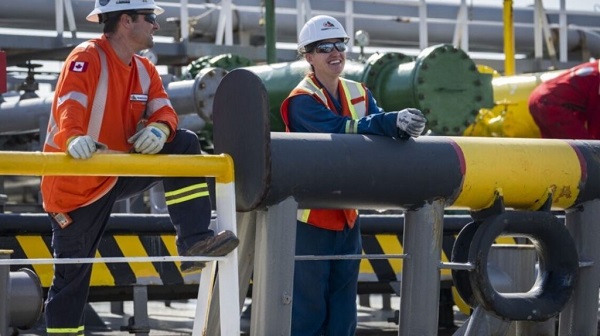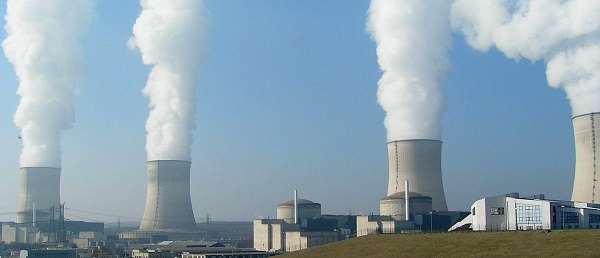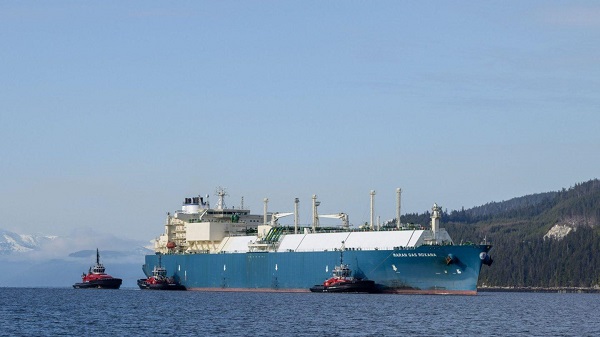Energy
Government policies diminish Alberta in eyes of investors
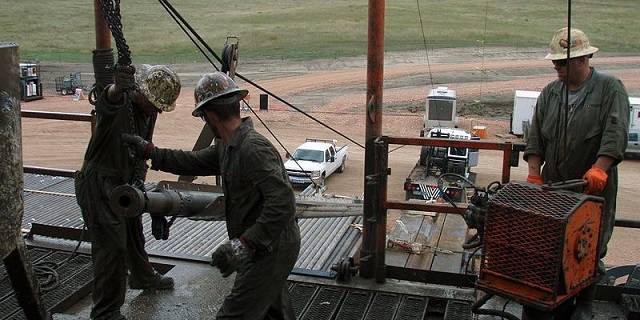
From the Fraser Institute
By Julio Mejía and Tegan Hill
Canada’s economy has stagnated, with a “mild to moderate” recession expected this year. Alberta can help Canada through this economic growth crisis by reaping the benefits of a strong commodity market. But for this to happen, the federal and provincial governments must eliminate damaging policies that make Alberta a less attractive place to invest.
Every year, the Fraser Institute surveys senior executives in the oil and gas industry to determine what jurisdictions in Canada and the United States are attractive—or unattractive—to investment based on policy factors. According to the latest results, red tape and high taxes are dampening the investment climate in the province’s energy sector.
Consider the difference between Alberta and two large U.S. energy jurisdictions—Wyoming and Texas. According to the survey, oil and gas investors are particularly wary of environmental regulations in Alberta with 50 per cent of survey respondents indicating that “stability, consistency and timeliness of environmental regulatory process” scared away investment compared to 14 per cent in Wyoming and only 11 per cent in Texas.
Investors also suggest that the U.S. regulatory environment offers greater certainty and predictability compared to Alberta. For example, 42 per cent of respondents indicated that “uncertainty regarding the administration, interpretation, stability, or enforcement of existing regulations” is a deterrent to investment in Alberta, compared to only 9 per cent in Wyoming and 13 per cent in Texas. Similarly, 43 per cent of respondents indicated that the cost of regulatory compliance was a deterrent to investment in Alberta compared to just 9 per cent for Wyoming and 19 per cent for Texas.
And there’s more—41 per cent of respondents for Alberta indicated that taxation deters investment compared to only 21 per cent for Wyoming and 14 per cent for Texas. Overall, Wyoming was more attractive than Alberta in 14 out of 16 policy factors assessed by the survey and Texas was more attractive in 11 out of 16.
Indeed, Canadian provinces are generally less attractive for oil and gas investment compared to U.S. states. This should come as no surprise—Trudeau government policies have created Canada’s poor investment climate. Consider federal Bill C-69, which imposes complex, uncertain and onerous review requirements on major energy projects. While this bill was declared unconstitutional, uncertainty remains until new legislation is introduced. During the COP28 conference in Dubai last December, the Trudeau government also announced its draft framework to cap oil and gas sector greenhouse gas emissions, adding uncertainty for investors due to the lack of details. These are just a few of the major regulations imposed on the energy industry in recent years.
As a result of these uncertain and onerous regulations, the energy sector has struggled to complete projects and reach markets overseas. Not surprisingly, capital investment in Alberta’s oil and gas sector plummeted from $58.1 billion (in 2014) to $26.0 billion in 2023.
The oil and gas sector is one of the country’s largest industries with a major influence on economic growth. Alberta can play a key role in helping Canada overcome the current economic challenges but the federal and provincial governments must pay attention to investor concerns and establish a more competitive regulatory and fiscal environment to facilitate investment in the province’s energy sector—for the benefit of all Canadians.
Authors:
Carbon Tax
Carney picks up Trudeau’s net-zero wrecking ball

This article supplied by Troy Media.
 By Gwyn Morgan
By Gwyn Morgan
With Mark Carney in charge, Canada’s self-destructive energy and emissions policies are about to get worse
Justin Trudeau’s carbon taxes and net-zero crusade crippled Canada’s economy and doubled the national debt. Now, voters have handed the reins to
someone just as committed to net zero, but more cunning and better connected to the global ecozealot establishment. His devotion to global climate
orthodoxy and emissions reduction policies will take Trudeau’s economic damage to the next level.
Mark Carney isn’t a fresh start—he’s a polished continuation of the same destructive agenda. As cochair of the Glasgow Financial Alliance for Net Zero
(GFANZ) and former UN special envoy for climate action and finance, he’s deeply embedded in the international climate establishment.
GFANZ is a global coalition of banks, insurers and investment firms that aims to push trillions of dollars in private capital toward net-zero goals, often by pressuring companies to abandon fossil fuel investments.
Net-zero policies, in theory, aim to balance carbon emissions with carbon removal efforts. In practice, they’ve meant higher carbon taxes, expensive
subsidies for unreliable wind and solar, and aggressive restrictions on Canada’s oil and gas sector.
Trudeau’s widely unpopular consumer carbon taxes were quietly scrapped to ease Carney’s path to power, but the taxes didn’t disappear. He simply shifted the burden to manufacturers, where it’s hidden from voters but still raises prices. Now, businesses take the blame while the Carney government escapes scrutiny.
Carney’s elite financial background leaves him out of touch with ordinary Canadians struggling to feed their families and small business owners
working 14-hour days to meet payroll. To him, they’re just part of the carbon-emitting masses ruining the planet.
He now claims he wants to make Canada both a “conventional” and “clean” energy superpower. But in both cases, that ship has already sailed, despite the roadblocks his allies helped build.
On the conventional side, Canada’s 171 billion barrels of proven oil reserves rank third in the world. We produce 5.1 million barrels per day, fourth globally, and have vast untapped natural gas resources ideal for LNG exports.
Oil and gas are the bedrock of our economy, funding equalization payments, generating foreign exchange and supporting the Canadian dollar. The Canadian Association of Petroleum Producers reports the sector contributes over $70 billion to GDP annually, pays $94 billion in taxes and royalties, and will see $40 billion in capital investment in 2025—more than any other industry.
The industry supports 900,000 direct and indirect jobs across engineering, environmental technology, safety, finance and construction. Oil and gas exports top $100 billion annually, making up 20 per cent of Canada’s trade balance.
Yet much of Quebec’s oil still comes from Saudi Arabia, Algeria and Nigeria via foreign-flagged tankers sailing up the St. Lawrence. Despite Canada’s vast reserves, Quebec relies on foreign oil because no pipeline connects Western producers to Eastern refineries, largely due to political and regulatory
roadblocks.
Carney claims to support building a pipeline to Quebec, but that would require fast-tracking approvals and lifting the Trudeau-era emissions cap. This federal policy limits total emissions from the oil and gas sector, effectively capping production growth regardless of market demand or infrastructure needs.
After meeting Alberta Premier Danielle Smith on March 21, Carney told reporters: “The emissions cap is there for a reason… getting investment emissions down from the production to transmission of conventional oil and gas … the issue is getting investments down.” Translation: Don’t start ordering pipe just yet.
As a former oil and gas CEO, I spent 16 years trying to protect our industry from the first Trudeau. Then came Justin. Now we have Carney, and—as John Fogerty, the legendary frontman of Creedence Clearwater Revival, once put it—it’s “Déjà Vu All Over Again.”
On the clean energy front, Canada already leads. According to the Canadian Centre for Energy Information, 82 per cent of our electricity comes from nonemitting sources like hydro, wind, solar and nuclear. That makes us a clean energy superpower by any global standard. Carney should be thrilled, and taxpayers should be relieved.
But that’s not enough for the climate elite. Carney, like Trudeau, ultimately wants to eliminate fossil fuels.
Canadians have already endured a decade of net-zero policies: rising costs, stagnant productivity and GDP per capita that has collapsed to just 55 per cent of the U.S. level. Meanwhile, the national debt has doubled.
So what exactly has all this sacrifice accomplished?
China, India, Russia and the United States emit a combined 22,967 megatonnes of carbon annually. Canada emits just 575. If we shut down our entire economy tomorrow, those countries would make up the difference in nine days.
Pierre Poilievre promised to scrap the carbon tax and fast-track pipelines and LNG development. Instead, voters chose the GFANZ co-chair and UN climate envoy.
It’s going to be a long, difficult four years for a country blessed with some of the world’s greatest natural and human resources, yet determined to squander them.
Gwyn Morgan is a retired business leader who has been a director of five global corporations.
Troy Media empowers Canadian community news outlets by providing independent, insightful analysis and commentary. Our mission is to support local media in helping Canadians stay informed and engaged by delivering reliable content that strengthens community connections and deepens understanding across the country
Business
The Liberals Finally Show Up to Work in 2025

From the National Citizens Coalition
Canadians Demand Action, Not More Empty Promises
The National Citizens Coalition (NCC) today calls out the Liberal government for their belated return to the House of Commons in 2025, after months of dodging accountability while Canadians grapple with skyrocketing costs, unaffordable housing, crime and chaos, and the fallout of a decade of failed Liberal policies.
While the Liberals dust off their seats, millions of Canadians have been struggling to pay for groceries, keep a roof over their heads, or envision a future where hard work still pays off. The NCC demands the government stop hiding behind empty rhetoric and deliver meaningful, common-sense actions to address the crises they’ve exacerbated.
“After years of empty gestures, empty rhetoric, and empty promises, showing up to Parliament in 2025 isn’t an achievement – it’s the bare minimum. Canadians are drowning in high taxes, inflation, and a housing crisis, and they deserve real solutions, not more speeches,” says NCC Director Alexander Brown.
The NCC calls on the Liberal government to immediately prioritize:
Immediate tax relief to put money back in the pockets of hardworking Canadians, including axing the HIDDEN CARBON TAX on our Great Canadian businesses.
Concrete steps to slash immigration back to responsible, sustainable norms; including a crackdown on fraudulent ‘diploma mills,’ and the abolishment of the ‘Temporary Foreign Worker’ program, to protect Canadian jobs, and the jobs of our youth.
Meaningful, immediate efforts to increase housing supply, by slashing red tape and bureaucratic roadblocks that drive up development costs.
An end to wasteful spending on pet projects and corporate handouts that do nothing for struggling families.
Steps toward meaningful criminal justice reform; including an end to Liberal catch-and-release bail for repeat violent offenders.
A plan to restore economic opportunity, so young Canadians can afford homes and build a future without fleeing the country.
And it’s time to Kill Bill C-69 — and Build Pipelines.
Working Canadians have heard enough platitudes – it’s time for results. The government must act decisively to fix the mess they’ve created or step aside for those who will. With just a few short weeks before the Liberals abscond for another vacation, IMMEDIATE ACTION is required to match the urgency of the moment, and to atone for the insult of the Liberals’ cynical, dishonest, “elbows up” campaign that left millions of young, working-age Canadians without hope for the future.
About the National Citizens Coalition:
Founded in 1967, the National Citizens Coalition is a non-profit organization dedicated to advocating for lower taxes, less government waste, and greater individual freedom. We stand for common-sense policies that once again put Canadians first.
-

 Business1 day ago
Business1 day agoCarney government’s proposed tax cut misses the mark—twice
-

 Business1 day ago
Business1 day agoOntario government will spend more—for less housing
-

 Business1 day ago
Business1 day agoThe Liberals Finally Show Up to Work in 2025
-

 Business1 day ago
Business1 day agoTrump furious over Putin’s Kyiv strikes: Sanctions “absolutely” possible
-
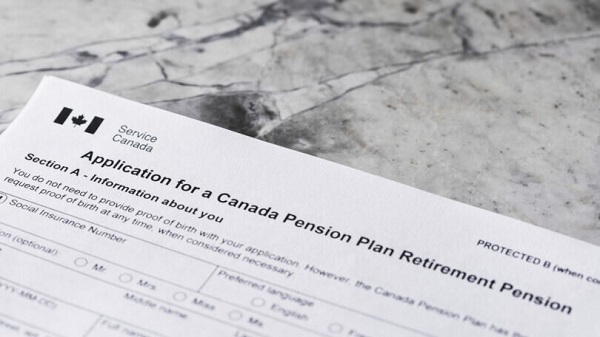
 Banks1 day ago
Banks1 day agoCanada Pension Plan becomes latest institution to drop carbon ‘net zero’ target
-
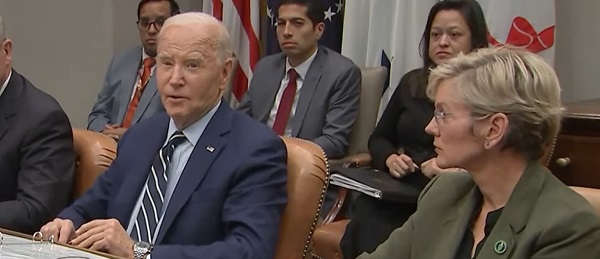
 Daily Caller2 days ago
Daily Caller2 days agoTrump’s ‘Big, Beautiful Bill’ Smashes Biden’s Signature Climate Law Into Pieces
-

 2025 Federal Election22 hours ago
2025 Federal Election22 hours agoJudicial recounts give Conservatives 2 more seats, keeping Liberals short of majority
-

 Business2 days ago
Business2 days agoTrump delays 50% EU tariffs after Brussels begs for more time




